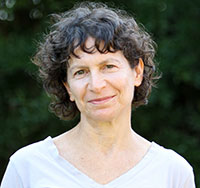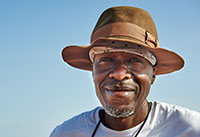 Irisa D. Arney. Western University of Health Sciences, College of Osteopathic Medicine of the Pacific Northwest, Lebanon, Oregon 97355, USA. (corresponding author) iarney@westernu.edu
Irisa D. Arney. Western University of Health Sciences, College of Osteopathic Medicine of the Pacific Northwest, Lebanon, Oregon 97355, USA. (corresponding author) iarney@westernu.edu
Dr. Irisa Arney is an Assistant Professor in the Department of Medical Anatomical Sciences. Dr. Arney received her bachelor's degree from Baylor University in Anthropology, a Master’s in Anthropology from New Mexico State University, and a Ph.D. in Biological Anthropology from the University of Michigan. Dr. Arney works on reconstructing the isotopic dietary ecology of Miocene mammals and the paleobiology of early and middle Miocene primates from East Africa. She has participated in fieldwork in eastern Uganda and western Kenya.
![]()
 Ellis M. Locke. Idaho College of Osteopathic Medicine, Meridian, Idaho 83642, USA. elocke@icom.edu
Ellis M. Locke. Idaho College of Osteopathic Medicine, Meridian, Idaho 83642, USA. elocke@icom.edu
Dr. Ellis Locke is an Assistant Professor of Anatomy at the Idaho College of Osteopathic Medicine. Dr. Locke received his B.A. in Anthropology from New York University and his Ph.D. in Evolutionary Anthropology from Arizona State University. Dr. Locke works on the evolutionary history of African mammals, focusing on the paleobiology and paleoecology of Miocene Old World monkeys and apes. His field experience includes work at Miocene sites in northern and western Kenya.
![]()
 Ellen R. Miller. Wake Forest University, Department of Anthropology, Winston Salem, North Carolina 27109, USA. millerer@wfu.edu
Ellen R. Miller. Wake Forest University, Department of Anthropology, Winston Salem, North Carolina 27109, USA. millerer@wfu.edu
Dr. Ellen Miller is a Professor in the Department of Anthropology at Wake Forest University. Dr. Miller received her B.A. in Anthropology from The George Washington University, her M.A. in Anthropology from New York University, and her Ph.D. in Anthropology from Washington University in St. Louis. Dr. Miller works on the fossil evidence for primate and mammalian evolution She currently conducts fieldwork at Miocene sites in the Turkana Basin, where she investigates the origin of apes v. Old World monkeys, the transition from an archaic African fauna to a more modern one, and the primate context within which the human lineage evolved.
![]()
 Isaiah O. Nengo, deceased. Formerly of Turkana Basin Institute, Social and Behavioral Sciences, Stony Brook University, Stony Brook, New York 11794, USA.
Isaiah O. Nengo, deceased. Formerly of Turkana Basin Institute, Social and Behavioral Sciences, Stony Brook University, Stony Brook, New York 11794, USA.
Dr. Isaiah Nengo (1961-2022) was the Associate Director of the Turkana Basin Institute and a faculty member at Stony Brook University, where his research focus was the evolution of Miocene apes in Africa. He completed a degree in Botany and Zoology at the University of Nairobi and received his PhD in Anthropology from Harvard University. His career spanned fieldwork at Kenyan early and middle Miocene fossil sites including Songhor, Buluk, and Napudet. His research legacy continues in the Turkana Miocene Project - a multidisciplinary effort to reconstruct climatic, landscape, and faunal dynamics across the Miocene epoch in the Turkana Basin of northern Kenya.
Photo of author is shared with permission from photographer David Gottlieb.

